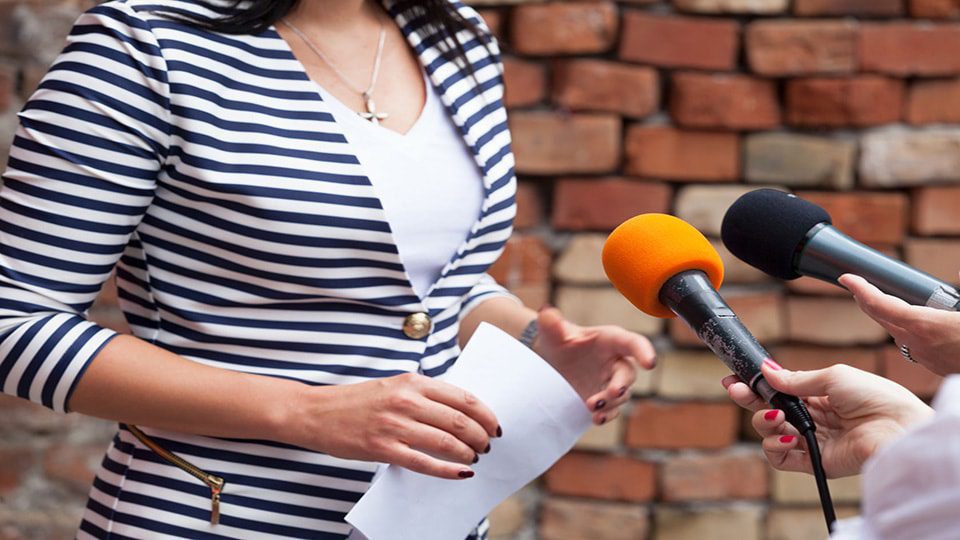Congratulations! You’ve just landed a media interview.
Now what?
Whether you hired PR services from a company like Weaving Influence or a reporter called you out of the blue, there’s a reason your expertise has caught their eye. It’s always good to do a little digging and find out why that is.
A Few Questions to Ask Right Off the Bat:
- Where does this journalist work? Usually this will be obvious, but sometimes a freelancer might contact you from a @gmail.com or other address. It doesn’t mean they’re not legitimate, but it’s always good to verify their publication or station, and do a little research into circulation or listenership.
- What are the last few stories the reporter has written? Or if a producer is contacting you, who were the show’s last few guests? If you have time, listen to or watch some of their interviews so you can get a feel for the program—and what you might be asked on air.
- What are the logistics? You want to be prepared, especially for radio and TV.
For Radio Interviews:
- What is the host’s name, and how is it pronounced?
- Is the show taped or live?
- Is it a phone interview or live in-studio? In-studio is always better—both for audio quality, and to get some facetime with the host. (Remember, it’s all about being asked back! Bring freebies like mugs, if you can, and also ask if you can send a book ahead of time.)
- Will you be expected to call in, or are you to wait for a producer to call you? Either way, what’s the right backup number to use in case the first one is jammed or you don’t receive a phone call?
- Will the host be willing to “plug” you, your book, or your social media accounts? Most are happy to mention that you have a book coming out—or how to reach you after the interview. (Frankly, it saves them time not to have listeners calling and writing to the station after the fact, asking for that information.)
For TV Interviews:
- Where should you park?
- How early will you need to arrive in order to get through security?
- Will the show provide makeup services for you, or should you arrive camera-ready?
- What does the host look like? What is their name, and how is it pronounced?
- Just like for radio—will the host be willing to “plug” your new book, twitter handle, or whatever project you’re working on? Ask ahead of time and make sure they have correct spellings for web addresses and social media accounts, so that these can be used in an onscreen graphic.
- Would the program like a copy of your book ahead of time, or a .jpeg of the cover to use onscreen?
Beyond this initial ‘homework’ when first contacted, you can sit back and relax. You’re the subject matter expert and this is not a test!
Sometimes a guest might request questions from a journalist ahead of the interview. Most of the time, this is not a good idea. For one thing, it makes you look a little bit nervous and high strung, and a high maintenance guest is not likely to be asked back on the show. Unless you’re running for political office, don’t worry—you’re probably not going to be asked any “gotcha” questions.
Clarify everything you need to clarify, but try to resist asking for anything more than general show topics. The show will be more conversational if you’re not glued to a set of talking points, and the person scheduling you for the interview may not be the one writing the questions anyway.
This is another reason why it’s so important to have a strong online presence. Journalists or producers will look for information about you online even before asking for an interview, especially for your biography/resume and any published works. What will they find?
On the day of the interview, show up or call in a few minutes early. Use a landline instead of a cell phone to ensure that the call doesn’t get dropped. Smile and stand up while you talk, if you can—both will make you sound more energetic and confident, and will keep you away from the distraction of your computer screen.
Standing up will also, according to some experts, cause you to keep the call shorter. Which is the last and best advice I can impart: be concise! Neither hosts nor listeners want to listen to someone ramble on and on. It even makes life hard for a print reporter, who then has to wade through 30 minutes of a transcript or notes (in addition to all of the other interviews they are conducting for their story) in order to find the best one or two short quotes you gave them.
If the host doesn’t bring up your book, website, or company name, try to work it into the conversation naturally so that listeners can at least Google you after the fact. But always, keep your answers short and sweet, and let the host or journalist ask follow-up questions if they want. Everyone will appreciate you for it. And a guest that is appreciated is a frequent guest!
Image Copyright: macor / 123RF Stock Photo

Laura Finch, a native of Wheaton, IL, has eight years of experience in politics and news, including time spent working as a press aide to a U.S. congressman and a stint as a producer for a morning cable news show. She holds an undergraduate degree in psychology from Taylor University in Indiana, a graduate degree in digital journalism from American University in Washington, D.C., and is an alumna of Indiana’s Lugar Series. She has also been published in one book, “The Zambia Project,” about a major student AIDS project completed through WorldVision. In her spare time Laura loves to run along the Potomac and discover new D.C. restaurants with her husband, Andrew.

